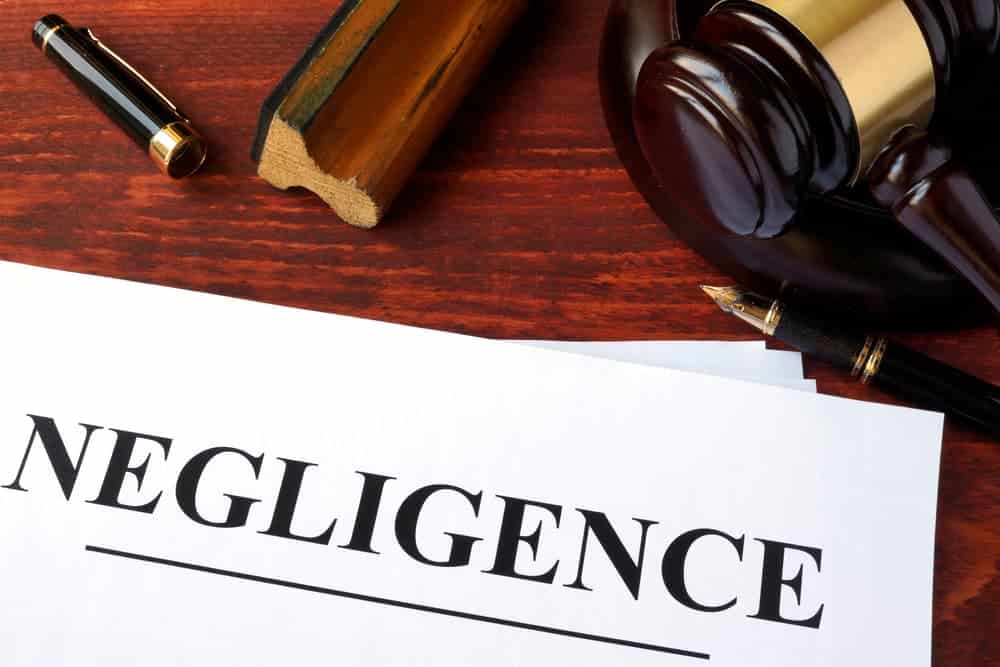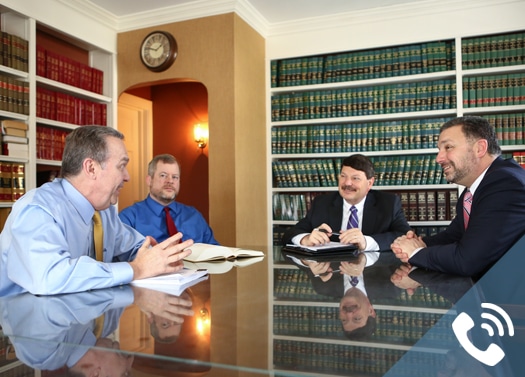Why Is Negligence So Hard to Prove?
Last updated Wednesday, November 20th, 2024

If you were injured in an accident through no fault of your own, you might know that the law allows you to seek compensation from the at-fault party for your medical bills, lost wages, loss of future earnings, pain and suffering, and more. Seeking this compensation is not always easy, however, since you will also have to prove that the other party was negligent and directly caused the accident.
With the help of an experienced injury lawyer, you could prove that the other side was negligent liable for the harm you’ve suffered.

Get Your FREE Case Review,
In Person or Virtually Online
If you were severely injured in an accident caused by someone else’s negligence in Connecticut, contact the experienced injury lawyers at Wocl Leydon, LLC, for help. We are ready to discuss the specifics of your case during a free and confidential consultation.
What Is Negligence?
Negligence is the legal theory used to hold an individual liable for an accident. Essentially, you must prove the other party had a duty to avoid harming you but failed to do so. If their actions or failure to act directly caused the accident that injured you, they could be responsible for compensating you.
The Elements of Negligence
Four elements must be satisfied to establish the other party was negligent, including:
- Duty — Duty refers to the legal duty of care the defendant owed others.
- Breach — The plaintiff must determine that the defendant breached this duty of care by act or omission.
- Causation — Causation requires proof that the defendant’s actions actually and proximately caused the plaintiff’s injuries.
- Damages — Damages are the plaintiff’s harm and losses.
What Evidence Do I Need to Prove Negligence?
Establishing negligence can be done through direct evidence, circumstantial evidence, or the legal doctrine of res ipsa loquitur (Latin for “it speaks for itself”).
Direct evidence is linked to the accident and can be proven true or false. Video footage and eyewitness testimony are examples of direct evidence. On the other hand, circumstantial, or indirect, evidence simply allows for inferences based on the information provided.
In some cases, plaintiffs can rely on the legal doctrine of res ipsa loquitur to establish the defendant’s negligence. The plaintiff must prove there is no way this type of accident and resulting injury could occur without negligence.

Get Your FREE Case Review,
In Person or Virtually Online
Why is Negligence Hard to Prove?
In many instances, negligence is difficult to prove. Some of the reasons include:
- Not Establishing a Duty of Care — Determining the defendant owed the plaintiff a duty of care is the first element of negligence. If the plaintiff cannot prove the defendant owed them a legal duty, the plaintiff cannot proceed with establishing negligence.
- Not Proving Breach or Causation — The plaintiff must show the defendant breached their duty, and this breach was the cause of their injuries. If the plaintiff cannot prove the defendant breached or cannot prove the direct link between the breach and their injuries, it is impossible to establish negligence.
- Not Having Documentation of Injuries — Proper documentation is essential for showing negligence. To prove the defendant’s negligence was the direct cause of the plaintiff’s injuries, the plaintiff must have enough documentation detailing their injuries. If there is little to no documentation, it can be difficult to prove the defendant’s negligence caused the injuries.
- Comparative Negligence — Comparative negligence refers to the plaintiff’s degree of negligence responsible for the accident. If the plaintiff played a role in the accident that caused their injuries, this could add a layer of complication.
- Not Tracking Financial Damages — If the plaintiff cannot prove the accident resulted in financial losses, they are missing the final piece of the puzzle.
Need Help Proving Fault? An Injury Lawyer Can Help
Proving fault can be challenging, but you can trust the experience and skill of the team at Wocl Leydon, LLC. We have what it takes to make a difference in your case. Contact us today for a free consultation.

